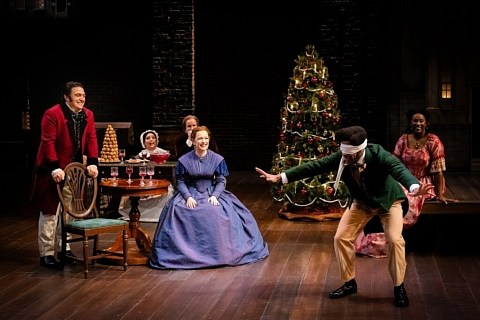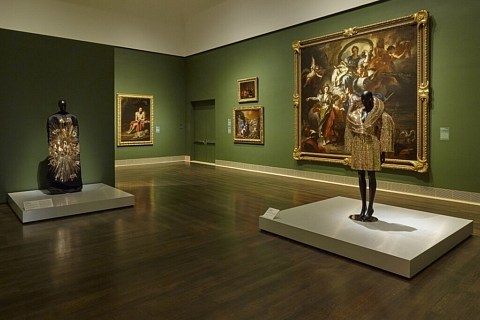Over the past weekend, I was able to attend the play Permanent Collections, which was a critical look at race in the art world.
In the play, Sterling North, an African American businessman, becomes the new director of the Morris collection, a well-renowned art collection. Soon after beginning his work, he finds that eight African art pieces are hidden in storage, so he campaigns for the art to be placed alongside the other white artworks in the collection. This causes an uproar with the current education director, Paul Barrow, who refuses that the artwork be placed alongside famous western artists like Matisse. Eventually, this outrage is spurred by accusations of racism by an overzealous journalist as Barrow and North both try to assert their dominance over the gallery.
At first, I wasn’t sure if the play would be able to properly address racism while also convincing the audience of North’s innocence in two and a half hours, but I was wrong. My expectations were exceeded, as the play was extremely well done and impactful. At the end of the play, many of the audience members were cheering on North’s pursuit of bringing change to the gallery and bringing African art to the forefront. Rarely ever is a play or movie able to concisely discuss themes of race or power while doing justice to the plot, however, playwright Thomas Gibbons does an excellent job of balancing these themes while also bringing a compelling plot to the audience.
During the entire play, I was on the edge of my seat, curious to learn more. By the time it was over, I was shocked it had only been 2 and a half hours because I was so immersed. Overall, the production quality of the play was extremely good. The actors were all very convincing and believable which I found shocking because often Black characters in media are often portrayed as one-dimensional. However, Gibbons makes North an extremely charming and powerful character whose life has been affected by racism and is genuinely trying to bring beneficial change to the gallery, regardless of whether Barrow believes him. Kanika, another Black character, laments between having to choose her friendship with Barrow or her race as she is put into a position where she ultimately has to decide whether she supports North or Barrow.
Main Street Theatre provided an intimate venue that allowed the audience to deeply connect with the characters in a thought-provoking manner. Check out the Main Street Theater website to learn more.





Recent Comments